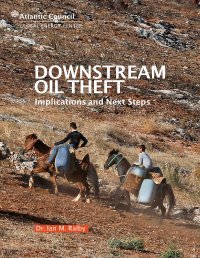Downstream Oil Theft: Implications and Next Steps
By Ian M. Ralby
On January 13, 2017, the Atlantic Council launched a major study on downstream oil theft at its inaugural Global Energy Forum in Abu Dhabi, United Arab Emirates. The present analysis draws on that launch event to examine the implications of the Downstream Oil Theft: Global Modalities, Trends, and Remedies report findings, and to suggest tangible next steps in both further investigating this global scourge and beginning to confront it effectively. The panel, moderated by Ambassador Richard Morningstar, the Atlantic Council Global Energy Center’s chairman, included the lead author of the report, Dr. Ian Ralby, a nonresident senior fellow of the center and chief executive officer (CEO) of I.R. Consilium; Éric Besson, former minister of industry, energy, and digital economy for the Republic of France; Dr. John Gannon, former Central Intelligence Agency deputy director for intelligence and chairman of the US National Intelligence Council; and Kola Karim, CEO of Shoreline Energy, an oil company in Nigeria. Though the panelists’ comments form a starting point for this analysis, they do not constitute the sole basis for this report. The implications of the study are extensive and point to a wide range of challenges, but six areas stand out as encompassing the most significant consequences of illicit downstream hydrocarbons activity: 1. The Energy Industry 2. Security, Terrorism, and Law Enforcement 3. The Environment 4. Finance and Economics 5. Politics and Policy 6. International Relations The present analysis focuses on the implications of the study for these six areas
Washington, DC: Atlantic Council, 2017. 15p.


